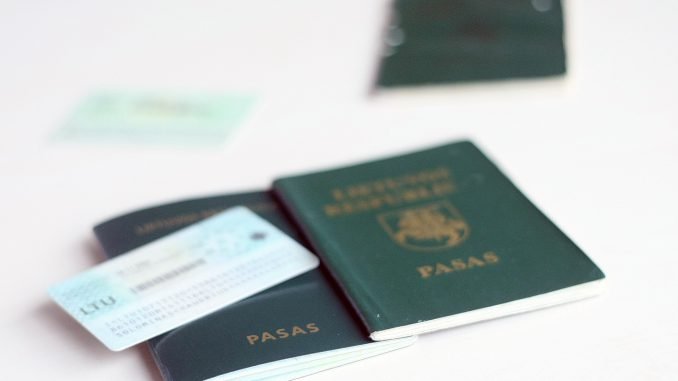
On Wednesday, the initiative group presented its plan to the Central Electoral Commission which issues special forms for collecting signatures. The election watchdog’s decision is due on September 2.
The group wants to collect 50,000 signatures of Lithuanian citizens and use the constitutional right of citizens to initiate legal amendments.
They want the Seimas to update the Law on the Identity Card and Passport and include a provision that a person name’s on the main page of official documents should be transcribed according to the phonetic rules of the Lithuanian language, while any record in a different language could be made on the passport’s additional page or the other side of an ID card.
“We believe that we would be able to kill two birds with one stone as the state language would be protected and also citizens who want their names spelled in ID documents in some other language would have this opportunity,” Gintaras Songaila, a member of the initiative group, told journalists on Wednesday.
He believes the collection of 50,000 signatures and adoption of the proposed amendments would put an end to the public’s “hounding” regarding the spelling of non-Lithuanian names.
The group will have to collect 50,000 signatures supporting the bill within two months.
Current laws stipulate that last names of all Lithuanian citizens can only be spelled in characters of the Lithuanian alphabet, which does not include letters w, x or q. Supporters of the amendments maintain that this causes problems for Lithuanians who marry foreign nationals.
Politicians of the Polish community in Lithuania and their supporters in Poland have long been asking to allow Polish letters in the last names of Polish speakers, an issue that has been polluting the bilateral Lithuanian-Polish relations.
Critics say that non-Lithuanian characters would undermine the status of Lithuanian as the official language and, furthermore, can cause trouble in reading non-Lithuanian last names.
The government pledged back in 2012 to resolve the name spelling issue, as well as the spelling of streets and locations and areas populated by ethnic minorities, and has since then set several deadlines which were subsequently moved.

Be the first to comment